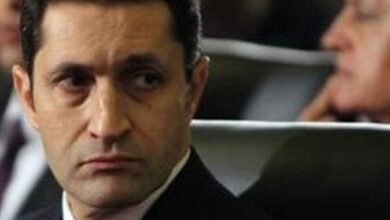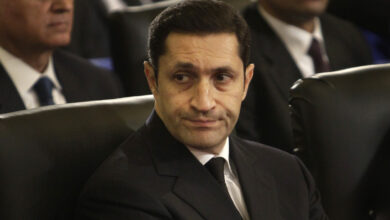At 11:12 pm, Tuesday, the state-run news agency MENA aired a short news piece quoting an unknown medical source as saying that former President Hosni Mubarak was clinically dead and that "his vital organs stopped working."
MENA went on to say that this happened after Mubarak suffered from a stroke while in his cell in Tora Prison, requiring him to be rushed to the Maadi Military Hospital in an attempt to save his life, which was now under threat.
After less than two hours, the news was proven false, and it was announced that the former president was in stable condition. In a press statement released by Major General Mohsen al-Fangary, the Supreme Council of Armed Forces subsequently denied any deterioration in Mubarak's health. He currently remains outside of prison in the Maadi hospital.
International news agencies and networks rushed to verify the news broadcasted by MENA via other sources. MENA's status as the "official news agency" and main source of Egypt's internal affairs news has caused confusion among international agencies, pushing them to adopt a "conflicting news" policy regarding Mubarak's health.
The BBC network asked Mahmoud al-Shenawy, deputy editor of MENA, to confirm the procedures taken by the agency to verify the news of Mubarak's near-death. Shenawy replied that MENA decided to publish the news at the editor's discretion, without following the usual methods of verifying information via independent sources, and relying on testimony from unverified anonymous sources.
The "Official Agency" and the testing of professionalism
The false news of Mubarak's clinical death crowned weeks' worth of controversy surrounding the Middle East News Agency, which has gone from being the official source of news in Egypt to being the topic of news itself.
Established in 1954 by a sovereign state decree from President Gamal Abdel Nasser, over the past few weeks of raging conflict over the presidential seat, MENA has become the subject of numerous accusations.
It all began when Editor-in-Chief Adel Abdul Aziz fired his deputy, journalist Raja al-Marghany, for deciding to publish a news story about calls for demonstrations in Tahrir Square. Since then, Marghany has accused MENA of favoring presidential candidate and former Prime Minister Ahmed Shafiq, and sacrificing objectivity to publish Shafiq's propaganda.
Journalists organized a protest on 9 June against what they described as MENA's bias for Shafiq throughout its coverage of the presidential election.
In a statement released last week, media sources quoted MENA journalists as accusing the chairman of the board and editor-in-chief of "removing journalists opposing Shafiq from the agency."
The accusations are supported by human rights reports issued by the Arab Network for Human Rights Information (ANHRI) that accused MENA of bias in its news stories about Shafiq.
The ANHRI report stated, "The network has acquired information suggesting that the editor-in-chief of the agency made editorial decisions for the benefit of Shafiq. He exerts professional, moral and material pressures on journalists, at an agency that is funded by the state and taxpayers' money."
MENA's editor-in-chief replied to these charges by asserting the agency's commitment to professional standards, accusing the ANHRI of blackmail and stating that MENA would file suit against the network for slander and libel.
These accusations come after years of widespread criticism against MENA, which include that the agency is unprofessional in its reporting, and has exploited its broad network of correspondents and reporters as well as its financial resources in the service of the former president's regime.
Financial charges against MENA were included in reports by the Central Auditing Authority, which stated that the agency had a budget deficit that at times reached more than LE35 million, as in the financial report for 2006.
MENA employs 400 reporters and editors. It has broadcast its services via satellite since 1996, and issues several specialized news bulletins, including two daily newscasts for the Middle East and Arab region and another for economic news, as well as two news bulletins in English and French.
MENA is managed by a council of 16 deputy editors and managing editors. It includes six sections for news, editing, bulletins, overseas offices, a special economic section and another for photojournalism.
Edited translation from Al-Masry Al-Youm




